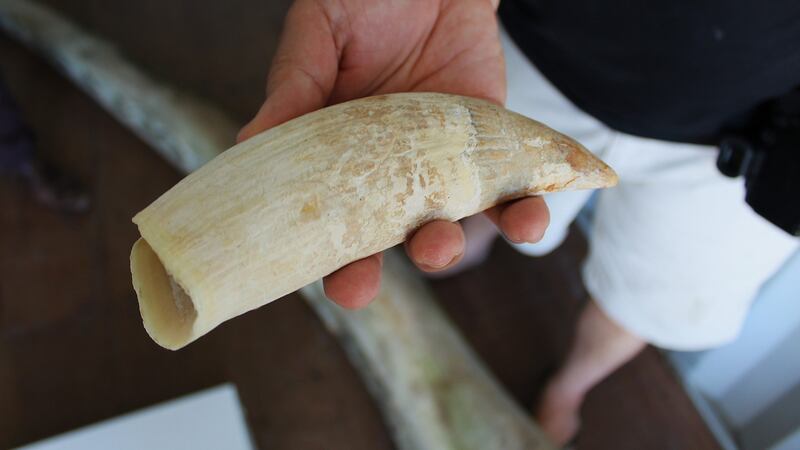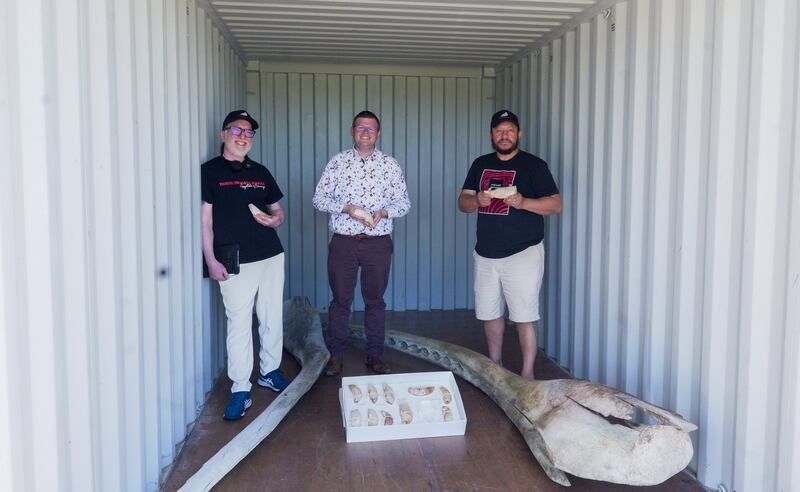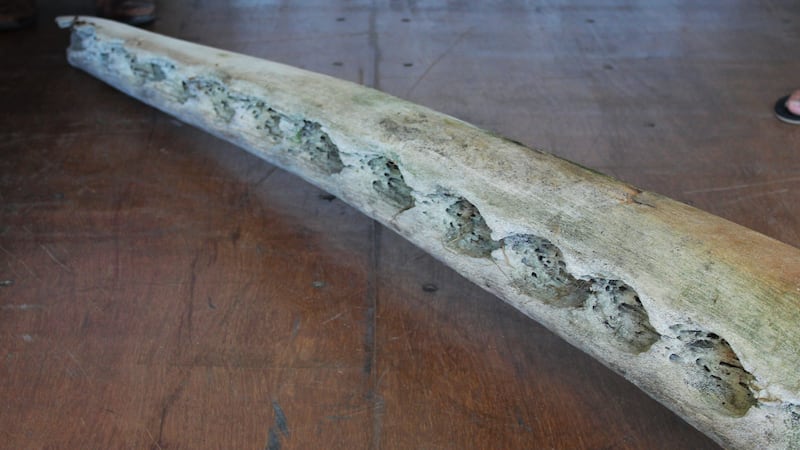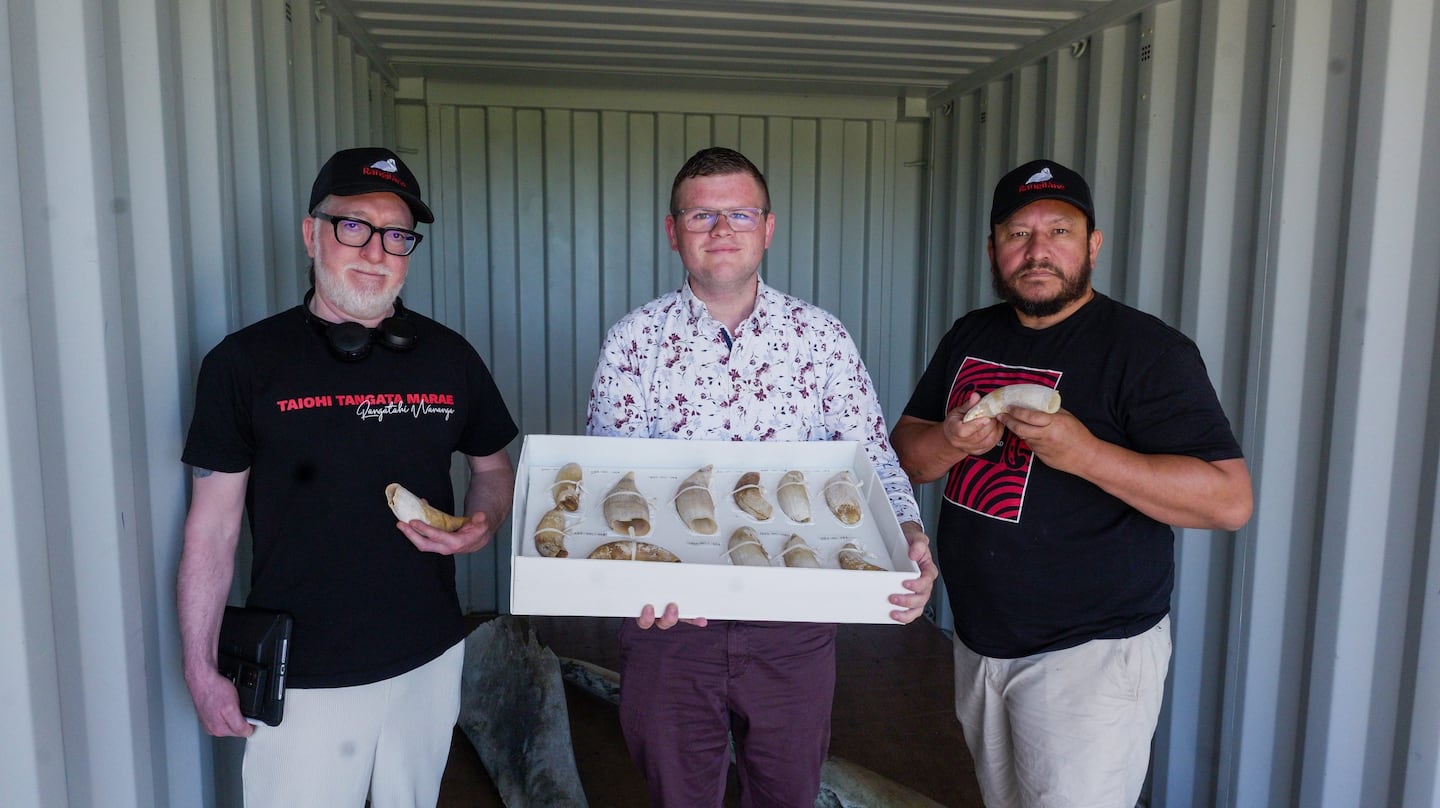A whale jawbone dug up and given to one iwi without telling another has been returned to Te Tauihu (the top of the south).
The move is not just about the taonga (treasure), but a wider recognition of Rangitāne’s connection with the east coast south of Blenheim, says iwi member Keelan Walker.
The jawbones, from two separate sperm whale strandings in 2009 and 2018, were supposed to be in the care of the Department of Conservation while Te Rūnanga a Rangitāne o Wairau and Ngāti Kuri/Ngāi Tahu worked through who was entitled to them as kaitaki (trustee).
But the bones ended up being handed to Ngāti Kuri/Ngāi Tahu, despite both iwi having a connection with the area, prompting Rangitāne to take the matter to the High Court.
Te Rūnanga a Rangitāne o Wairau kaiwhakahaere matua (general manager) Corey Hebberd said both iwi had been engaging for months around the allocation of the jawbones and teeth before they reached an agreement.
“That [agreement] is that each iwi received one jawbone each, in recognition of our respective rights and interests on the east coast,” Hebberd said.
“These should have always been iwi-to-iwi conversations.”

Rangitāne earlier received the teeth and jawbones of a whale that was found at the mouth of the Awatere River in November 2009, while Ngāti Kuri/Ngāi Tahu had the teeth and jawbones of a sperm whale found at Marfells Beach in July 2018.
Iwi member Dr Peter Meihana said Rangitāne’s association with whales was an old one, and they knew that because “Aunty” – a skull unearthed in the 1940s thought to be more than 700 years old – was found with a sperm whale tooth around her neck.
He recalled telling the late Richard Bradley that they were going to take the decision to the High Court. The former Rangitāne development manager, who worked on the iwi’s treaty settlement, died in 2022.
“It was the last time Richard Bradley was in Te Tauihu before he passed away,” Meihana said.
“I said to him ‘we’re taking this to the High Court’, and he had a smile on his face and he said ‘I’m happy this is happening because this needs to be sorted out’.”
Meihana said they could now look towards the co-operation of both iwi, for the benefit of both communities.

“Many people in our community whakapapa to Ngāti Kuri and Rangitāne,” he said.
He had visited Marlborough Boys’ College the day before the bones came back to Blenheim to explain its significance.
“Having those young college boys there was important, because now they become part of the story,” he said.
Walker said it was good to see the turnout from whānau who welcomed home the jawbone and its teeth, which took place on December 6 at Ūkaipō in Grovetown.
He said it was clear from the High Court decision the court recognised Rangitāne’s rangatiratanga in the “shared area” of the east coast.
“This is not just about the whale bones, it’s bigger than that,” Walker said.
The decision from Justice Francis Cooke, released in May last year, ruled that handing the jawbones to Ngāi Tahu without informing Rangitāne o Wairau was a breach of the Treaty of Waitangi.
For both whale strandings, DOC, Rangitāne and Ngāti Kurī agreed the whales would be buried, while the jawbones would be separated and remained with DOC until the iwi reached an agreement.

The jawbones were buried by DOC on nearby conservation land in Rangitāne’s takiwā, to ensure the mana of the whales was “respected”.
On February 11, 2021, a representative of Ngāti Kurī wrote to DOC saying they were establishing a whare taonga (treasure house) at Kaikōura, where the jawbones could be displayed.
Two days later, the minister of conservation at the time, Kiritapu Allan, attended a pōwhiri where Ngāti Kurī “asserted an entitlement” for the jawbones. Allen then told the director-general of DOC to make an “allocation decision”.
In April 2021, the deputy director-general of DOC held a hui separately with the two iwi.
Ngāti Kurī expressed “frustration” that their request for release had not yet been granted.
The hui with Rangitāne involved a “broader discussion” of the relationships between Rangitāne, DOC, and Ngāti Kurī. The iwi was not aware DOC was considering giving the jawbones to Ngāti Kurī.
In March 2022, DOC dug up the jawbones and transported them to their Kaikōura office on a trailer, which did not “sit right” with Ngāti Kurī who earlier said they expected DOC to use appropriate tikanga when moving the bones.
In late April, Rangitāne’s general manager wrote to DOC to say they had heard through the “kūmara vine” the jawbones had been uplifted from where they were buried.
DOC responded the same day, saying they were in the process of writing to tell them.
Rangitāne then challenged the decision in the High Court.
Justice Cooke concluded the DOC director-general had acted unlawfully. The decision to give the bones to Ngāti Kurī conflicted with the Marine Mammals Protection Act, which said Ngāti Kurī needed a permit to possess whale bones.
DOC had also breached the Treaty of Waitangi and section four of the Conservation Act by not informing Rangitāne, the decision said.
It said any allocation of the whale bones needed to be resolved by an “iwi-to-iwi” process.
Ngāi Tahu were approached for comment.
LDR is local body journalism co-funded by RNZ and NZ On Air.



